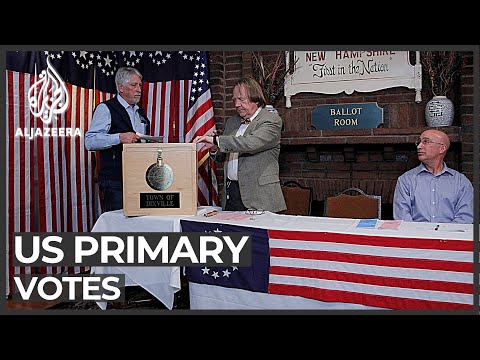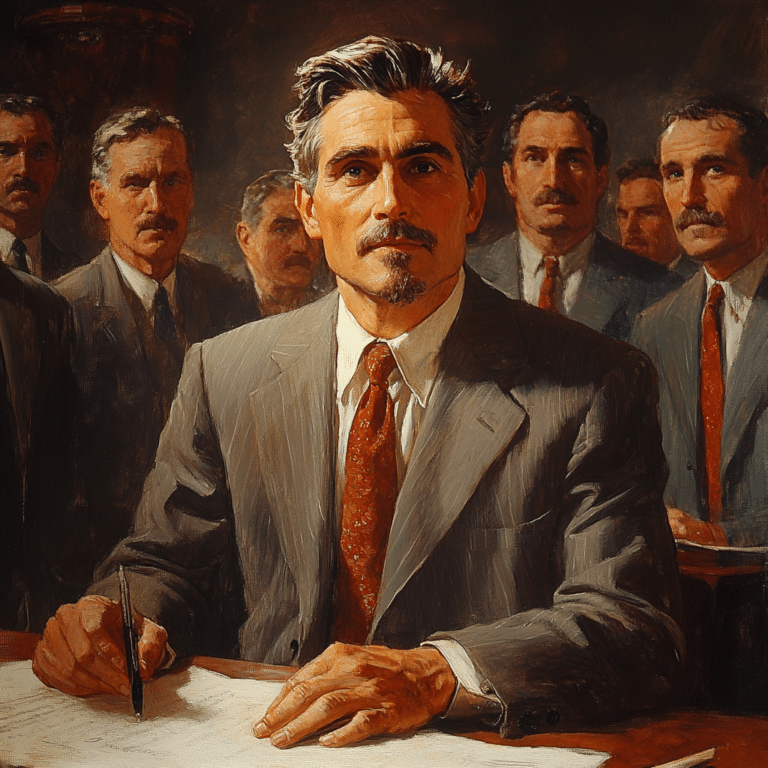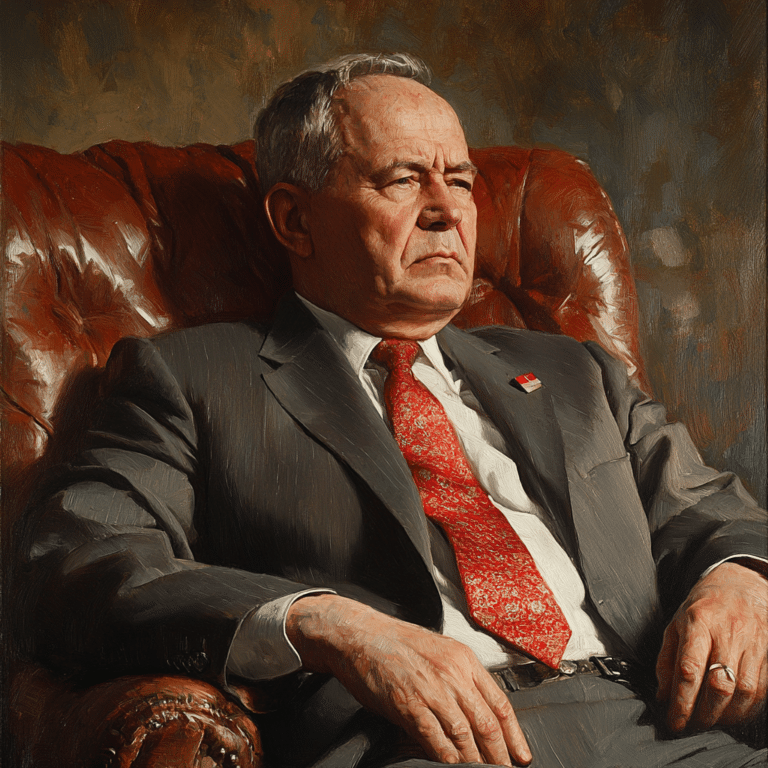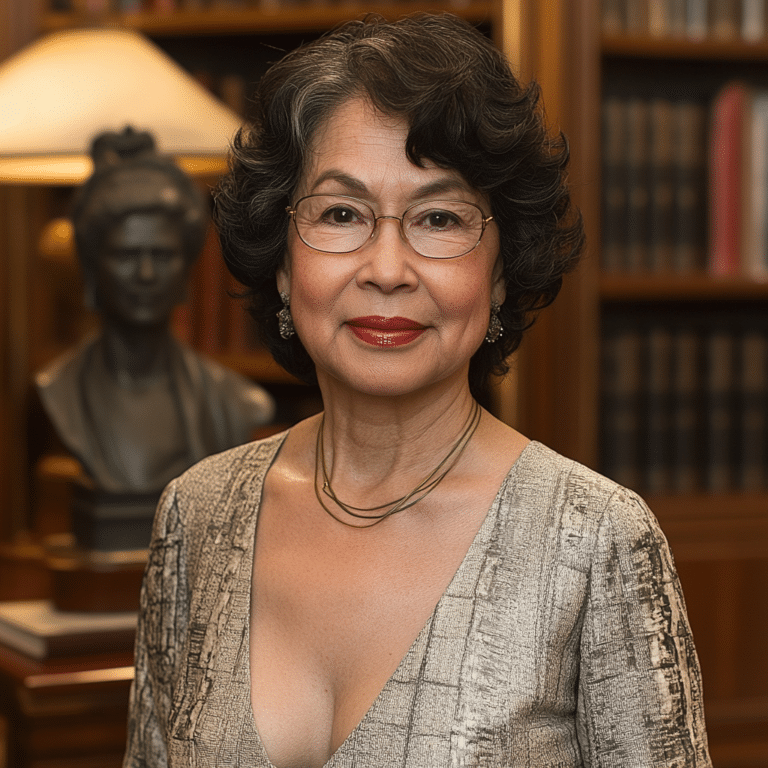In a time when political fervor runs high and party loyalty often dictates the direction of discourse, a silent, neutral force moves subtly yet decisively through the American political landscape. This force is the unaffiliated voter – a growing cohort that eschews party labels in favor of independent thought and a more selective approach to casting ballots. Today, let’s embark on an explorative journey to unearth the influence and dynamics of unaffiliated voters, casting a fresh light on their potential to reshape our democratic fabric.

Unmasking the Unaffiliated: Who Are They Really?
To understand the enigma of the unaffiliated voter, we have to look at the patchwork of American society itself. Unaffiliated voters represent a cross-section of demographics, including different ages, races, and socioeconomic backgrounds. Recent surveys indicate that a sizeable portion of the electorate now consider themselves independent of the traditional Democrat and Republican tags. But who are they really, and what drives their reluctance to align with a party?
Some are disillusioned former partisans tired of party dogmas that no longer resonate with their principles. Others are young voters, part of a generation skeptical of institutions and disillusioned by what they perceive as a gridlocked political system. Many, when interviewed, share a common verve for policies over politics, substance over symbolism.
“I just feel it’s more rational to look at the issues than the party,” confessed one interviewee from Baltimore, whose sentiments echo a common thread among unaffiliated constituents. They seek to judge the merit of a candidate based on policies and track record rather than party affiliation, demonstrating a deliberative approach to political engagement.

The Historical Evolution of the Unaffiliated Voter Base
The landscape wasn’t always dotted with the uncommitted. The story of the unaffiliated voter is etched with gradual disaffection from the two-party system over the decades. In this historical excavation, we find that pivotal elections and social movements have left impressions leading some away from rigid party identifiers.
Throughout the latter half of the 20th century, spikes in unaffiliated voter registration often corresponded with moments of cultural upheaval or dissatisfaction with party establishments. The present expansion of the unaffiliated can, in many respects, be linked to a broader quest for political authenticity and a reaction to hyper-partisanship that has left a bad taste in the voters’ mouths.
Records from past elections reveal a steady migration towards unaffiliation. The interesting thing to note here is the recurring pattern – a dance of disaffection post major political shifts or policy failures which did not meet voters’ expectations. Often after such an event, the ranks of the unaffiliated swell, a tangible sign of the rippling discontent bubbling under the surface of party politics.

| Aspect | Description | Examples |
| Political Affiliation | Refers to an individual’s lack of formal alignment or registration with a political party. | Unaffiliated voters, “independents,” individuals eligible to vote but not participating in party primaries or caucuses. |
| Religious Affiliation | The absence of formal association or membership with a religious organization. | Non-denominational individuals, secular humanists, people who practice spirituality without belonging to a specific religious community. |
| Organizational Affiliation | When a person or entity is not connected to any organization, association, or group. | Freelancers, solo entrepreneurs, or businesses that operate independently without ties to larger corporations or industry groups. |
| Academic Affiliation | The lack of official connection between institutions like hospitals and universities, or between individuals and academic bodies. | Private hospitals that are not school-affiliated, researchers or lecturers not holding positions at an academic institution. |
| Corporate Affiliation | The absence of common ownership, investment, or control between two companies or entities. | Two companies operating within the same industry that have no financial ties, cross-ownership, or shared board members. |
| Media Affiliation | Media outlets that operate independently without the direct influence or control of larger conglomerates, political organizations or other external partisan influences. | Independent news websites, community radio stations, and other media platforms that maintain a neutral and unbiased stance in their reporting. |
| Social Affiliation | An individual’s choice not to engage or identify strongly with any particular social group or community. | People who do not identify with any specific social circles, communities, or cliques. |
The Geographical Spread of Unaffiliated Voters Across the Nation
A look at the national map reveals the geographical spread of unaffiliated voters isn’t uniform. Certain regions – for instance, parts of the Mountain West – show higher concentrations than the national average. Through conversations with regional political experts, various reasons emerge, from cultural attitudes valuing individuality to reactions against local political monocultures.
Baltimore, a city with its own unique political ecosystem, has seen an uptick in unaffiliated registrations, with local observers attributing this rise to a mix of disenchantment with party effectiveness and a young, diverse population that leans towards issue-based alignment.
Dr. Rebecca Morton, a political scientist at a Baltimore think tank, highlights, “Here, unaffiliated doesn’t mean uninvolved. In fact, it’s often the opposite – a deliberate stance reflecting a demand for a more nuanced political dialogue.”

The Policy Preferences of the Unaffiliated: A Barometer for Centrism?
One might like to imagine that the unaffiliated voter leans towards the middle of the political spectrum, gravitating towards centrism. However, survey data put forth a more convoluted picture – policy leanings are diverse, and a uniform “centrist” agenda is hard to pin down. Rather, the unaffiliated tend to hold complex views that might mix traditionally conservative fiscal policies with liberal social stances, or vice versa.
Interviews with unaffiliated voters reveal a pattern of thought – it’s about the validity of the argument, not the ideological underpinning. Issues such as healthcare, education, and economic stability often come to the forefront, with many unaffiliated voters advocating for pragmatic, bipartisan solutions.
The implications for policy-making are profound, hinting at an electorate that could support compromise and cross-party cooperation, provided they deliver results. In a world where The perfect workout is elusive, the unaffiliated voter seeks political regimes that aspire to a similar well-rounded fitness in governance.

Influential Unaffiliated Voters in Recent Elections
The 2022 midterms served as a barometer for the influence of unaffiliated voters, particularly in pivotal swing states. Their impact in states like Pennsylvania and Georgia was clear as candidates who managed to strike a chord with this bloc often emerged victorious. But it’s the quest for the unaffiliated affection which will significantly color the landscape as we approach the 2024 elections.
Candidates and parties have started to tailor their campaigns to capture the attention of the uninvolved, adjusting their messages and platforms to speak to this increasingly influential group. Case studies of these swing states demonstrate how adeptly candidates must navigate the unaffiliated terrain, fostering a blend of policies that resonate with their diverse policy preferences.
The Party Reaction: How Democrats and Republicans Court the Unaffiliated
Both Democrats and Republicans have recalibrated their platforms and rhetoric, each aiming to court these kingmakers without alienating their base. Experts suggest a subtle balancing act – too far towards the center risks losing the core, yet ignoring the unaffiliated could spell electoral disaster.
Success stories include candidates who’ve deftly employed inclusive messaging, incorporating common ground issues to lure the unaffiliated without losing authenticity. On the flip side, a heavy-handed or disingenuous approach can backfire spectacularly, rendering the outreach effort more of a bad sister among family relations than a welcome gesture of unity.
Campaign strategist Ellen Marks opines, “The unaffiliated are not a bloc you win over with bombast or broad-strokes pandering. They demand – and respect – individual attention and specificity.”
Unaffiliated Voters and Third-Party Dynamics
The dance between unaffiliated voters and third-party candidates can be as intricate as a ballet. There’s logic to the assumption that unaffiliated voters might gravitate towards non-mainstream candidates, and indeed, some do. But the relationship is far from straightforward.
Data indicates that third-party performances often correlate with unaffiliated voter turnout, but it’s not always linear. Generally, third-party candidates offer these voters an alternative, yet viability concerns weigh heavy, leading many unaffiliated to cast strategic votes for one of the main parties to avoid “wasting” their vote. Nevertheless, leaders of third-party movements continue to hope for a breakthrough, aiming to attract those looking for something different.
Intriguingly, just as the unaffiliated might ponder over their local Catherines store near me, the choice isn’t always about proximity but also about quality and fit – a notion that applies just as aptly to their political selections.
Unaffiliated Influence in Local Governance and Reforms
On the state and local levels, unaffiliated voters have played pivotal roles, from school board elections to gubernatorial races. Policy reforms, often seen as the minutiae of governance, have been directed or upended by the unaffiliated vote. Notably, issues around redistricting and election financing have seen substantial unaffiliated input, suggesting a focus on the structural over the superficial.
Interviews with local officials underscore the weight of the unaffiliated influence. “When a sizable section of the constituency doesn’t toe a party line, you listen differently,” shares a city council member from Baltimore. The unaffiliated’s sway often amplifies in these more intimate electoral settings where the electorate’s nuances can’t be overshadowed by national narratives.
Unaffiliated Voter Mobilization: A Rising Phenomenon?
With growing recognition of their electoral heft, efforts to mobilize unaffiliated voters have intensified. Nonprofits and grassroots organizations tirelessly innovate to boost unaffiliated voter turnout, with campaigners comparing it to revving up a reliable but often overlooked Honda Acty – compact and unassuming, yet capable of making significant deliveries.
Activist groups have employed various methods, from educational campaigns to targeted registration drives. Interviews with organizers reveal optimism laced with practicality. These movements capitalize on a sentiment of empowerment, fostering a culture where unaffiliated voices aren’t just heard but sought after.
Recent election data bear witness to the effectiveness of such mobilization endeavors – the increased turnout of unaffiliated voters certainly shifted outcomes in tight races. The rise in electoral participation from this group heralds a promising trend toward broader democratic engagement.
The Global Perspective: Unaffiliated Voters in Other Democracies
Looking beyond American shores, the phenomenon of unaffiliated voters isn’t unique. Democracies worldwide report similar patterns of disassociation from traditional parties. International analysts often draw comparisons between the U.S. and nations like Germany, where the “Free Voters” reflect disenchantment with entrenched party systems.
Insights from these analysts suggest a global undercurrent of political restructuring – democratic societies broadly reexamining what political alliance means in the 21st century. While contexts vary, the overarching theme mirrors the U.S. scenario: a quest for inclusivity and representation, with unaffiliation serving as a refuge for the politically homeless.
Challenges Facing Unaffiliated Voters: Disenchantment and Disenfranchisement
Even as their numbers grow, unaffiliated voters face challenges. In some states, exclusion from primary elections remains a significant hurdle, leading to disenfranchisement and exacerbating disenchantment. The conversation often circles back to the psychological impact: feeling sidelined in the preliminary rounds can drain enthusiasm for participation in the general election.
Yet, the sound of calls for reform is growing louder. Proposals aiming to increase unaffiliated voter engagement range from open primaries to ranked-choice voting. These initiatives underscore a belief in the potential of unaffiliated voters to invigorate the democratic process, provided the pathways are open and equitable.
The Future Political Climate Shaped by Unaffiliated Voters
Peering into the political crystal ball, analysts project that the rising trend of voter unaffiliation could dramatically refashion the American political climate. Political science forecasts envisage various scenarios, from a weakened two-party system to the emergence of new coalitions grounded in policy over partisanship.
As parties and candidates adapt to the nuances of engaging with unaffiliated voters, the future may see a political environment where flexibility, responsiveness, and cross-ideological dialogue become the norm. Parties may no longer serve as the primary vessels of political identity, prompting a renaissance of what civic engagement entails.
Conclusion: The Neutral Force and Its Decisive Power
The journey through the realm of unaffiliated voters reveals a group that is anything but apathetic. Instead, they represent a multifaceted segment of the electorate, poised with the decisive power to tilt elections and push for reforms that prioritize people over parties.
As we navigate the complexities of modern politics, the takeaway is clear: engaging with unaffiliated voters is fundamental to sustaining a vibrant and responsive democracy. They’re not a demographic to be won over with fleeting charm but a constituency to be understood, respected, and included in the ongoing dialogue of governance.
Through analysis, interviews, and data, we see how the unaffiliated voter doesn’t just witness the political narrative – they are active authors of it. Far from being a mere neutral force, they may well be the catalysts for a new chapter of political participation and representation. As parties vie for their approval, and systems adapt to their rising voice, one thing remains certain: the unaffiliated voter is here to stay, and their impact will reverberate for elections to come.
The Growing Trend of the ‘Unaffiliated’
Let’s spill the beans on a term that’s becoming as trendy as a fresh cup of Lineage Coffee in the morning: “unaffiliated. Just as coffee lovers might not pledge allegiance to a single coffee shop, a rising number of voters prefer not to tie themselves to a particular political party. Now, hold your horses before you assume these folks just forgot to tick a box. These politically neutral players are making waves as influential as Val Kilmer’s health updates in the fan world. They scrutinize the ballot with the meticulousness of a celebrity handling a comeback—carefully considering each candidate beyond the confines of party lines.
A Fence Around Tradition
Speaking of lines, these unaffiliated voters don’t just sit on the proverbial political fence—they’re building their own with the sturdiness of chain link fencing. And just as this type of fencing can handle all sorts of weather without batting an eye, the unaffiliated voter withstands the stormy seas of political rhetoric with resilience. They’ve got the potential to tip the scales in close races, making them as sought-after as the elusive strain Jack herer in certain circles. And trust me, when it comes to elections, every pundit and campaign manager worth their salt knows that courting the unaffiliated is a high stakes game, as unpredictable yet potentially rewarding as trying a robust new coffee blend.
A Force that Can’t Be Ignored
Now here’s a kicker—while some might think of “unaffiliated” as simply not picking a team, it’s more like being a free agent in the major leagues. These voters might just be the most empowered of the bunch, with the freedom to swing the proverbial bat for the issues that resonate most, regardless of party pitch. They are the wildcard, the joker in the political deck, and they’re reshaping the playbook one election at a time. Just imagine the exhilaration of a baseball player hitting a homerun—that’s the kind of impact an unaffiliated voter can have on election night. And with each passing year, just like the demand for unique hybrid strains or innovative lifestyle tips, the number of these voters grows, adding to an already complex and enthralling political landscape.

What does it mean to be unaffiliated?
– Oh, to be unaffiliated? Well, that’s like being a lone wolf, my friend. It means you’re not tied down or siding with any particular group or organization. You know, marching to the beat of your own drum and all that jazz. So, when a hospital’s unaffiliated with a university, it’s standing on its own, with no strings attached.
What is a word for unaffiliated?
– Looking for a word that screams ‘unaffiliated’? How about ‘independent’? It’s like when you roll solo, not leaning towards any side, be it a group, a company, or a political party. It’s the perfect fit for someone who’s neutral, nonaligned, and just doing their own thing.
What is the meaning of unaffiliated person?
– Alright, an unaffiliated person is someone who’s flying solo, not officially hooked up with any specific group or organization. It’s like if you’re a voter who’s not batting for the Dems or the GOP; you’re unaffiliated. It’s your way of saying, “Nope, I’m my own person!”
What does unaffiliated mean in legal terms?
– In the maze of legal jargon, ‘unaffiliated’ keeps it pretty real—it simply means two entities are like ships passing in the night; they don’t share any common ownership or sit under the same umbrella of control. It’s all about being distinct and separate entities in the eyes of the law.
What is the word for no party affiliation?
– When you step into that voting booth with no party cheering you on, that’s ‘no party affiliation.’ It’s like saying, “Political parties? I don’t play favorites!” and it’s a choice many voters own up to when they’d rather not tie the knot with any political club.
What is a fancy word for nobody?
– Fancy a fancy word for nobody? The crickets-chirping, tumbleweed-blowing emptiness of ‘nobody’ can be captured with the word ‘nullity.’ It’s got a bit of a formal vibe, but hey, it’s as empty as it gets, expressing that there’s absolutely no one in sight.
What is the word for when nobody lives there?
– Oh, the eerie silence when nobody’s home? The word you’re looking for is ‘desolate.’ It paints a picture of a place so empty, you can hear your own heartbeat. It’s ghost town central, not a soul around.
What is a word for nobody?
– If you’re hunting for a straight-up word for ‘nobody,’ you can’t go wrong with ‘nada.’ It’s the casual way of saying “no one,” and it fits just about anytime you’ve got zero people in the mix.
What is atheists or unaffiliated?
– When you’re comparing ‘atheists’ to the ‘unaffiliated,’ here’s the deal: atheists straight up say “nope” to the existence of deities, while ‘unaffiliated’ folks might believe in something, but they’re not waving the flag for any particular religion. They’re essentially the free agents of the faith world.
What percentage of people are unaffiliated with a religion?
– So, how many are flying the spiritual skies without a co-pilot? Well, the stats on people unaffiliated with a religion are like shifting sands, but they’ve been making up a bigger slice of the pie in recent years. We’re talking a significant chunk—some surveys say around a quarter or more of the global population are in the unaffiliated camp.
Is an unaffiliated third party?
– Is an unaffiliated third party like a surprise guest at a party? Not quite. It’s more like someone who’s got no stakes in the game—they’re not linked to the main folks involved. So when two sides are duking it out, an unaffiliated third party is chilling on the sidelines, unbiased and unbothered.
What does unanimously mean legal?
– When something’s as clear as day and everyone’s nodding in agreement, that’s what ‘unanimously’ means in legal terms. It’s like the whole jury’s singing in harmony, everyone’s thumbs are up, and there’s not a single voice saying “hold up.”
What is individual in legal terms?
– In the world of law and order, an ‘individual’ is pretty much like saying “one person standing alone.” Not a group, not a team—just one human being with their own set of rights and responsibilities. That’s who they’re talking about when they say ‘the individual shall…’
What does uninhibited mean legal?
– Uninhibited in the legal world? It’s like when the shackles are off and you’re free to act without the usual barriers or restrictions hanging over your head. Legally speaking, it implies being totally free from restraint, letting your hair down, so to say, within the context of the law.
What is a word for not belonging in a place?
– Feel out of place? The word you’re after is ‘alien.’ Now, we’re not talking extraterrestrials; it’s for when you’re in a place that makes you stick out like a sore thumb, not fitting in with the vibe or the crowd. You’re basically the odd one out.
What is another word for people who don’t belong?
– If you’re looking for another word for people who are like fish out of water, try ‘misfits.’ These are the folks who march to their own beat and just don’t slot into the usual niches of society—they’re the square pegs in round holes.
What is another name for unregulated?
– Want to talk about something that’s wild and free, with no rules? The word you’re looking for is ‘unregulated.’ It’s like the Wild West out there, with no sheriff in town to lay down the law. Anything goes in the land of unregulated.
What is the word for no religious preference?
– When someone’s spiritual mailbox is empty and they’re not signing up for any religious newsletter, that’s ‘no religious preference.’ They’re like, “Thanks, but no thanks,” to putting a label on their spiritual beliefs—or lack thereof.



























